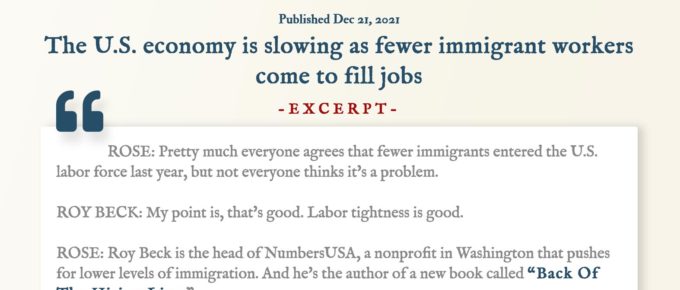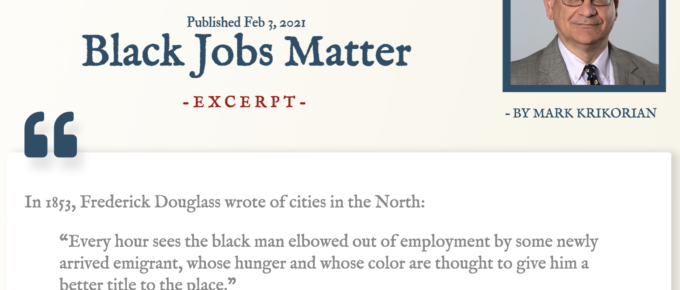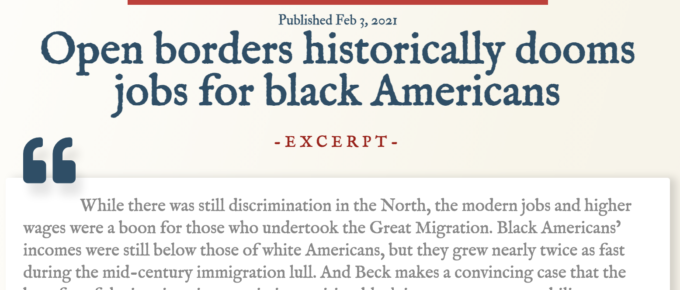“It is proven that you tighten the labor market and wages go up. It always happens. The fact that we had one year of less immigration…It’s one of the most positive things that could happen for tackling the economic inequality.” – Roy Beck
Ask your local Bookstore to stock Back of the Hiring Line, now available for wholesale.






